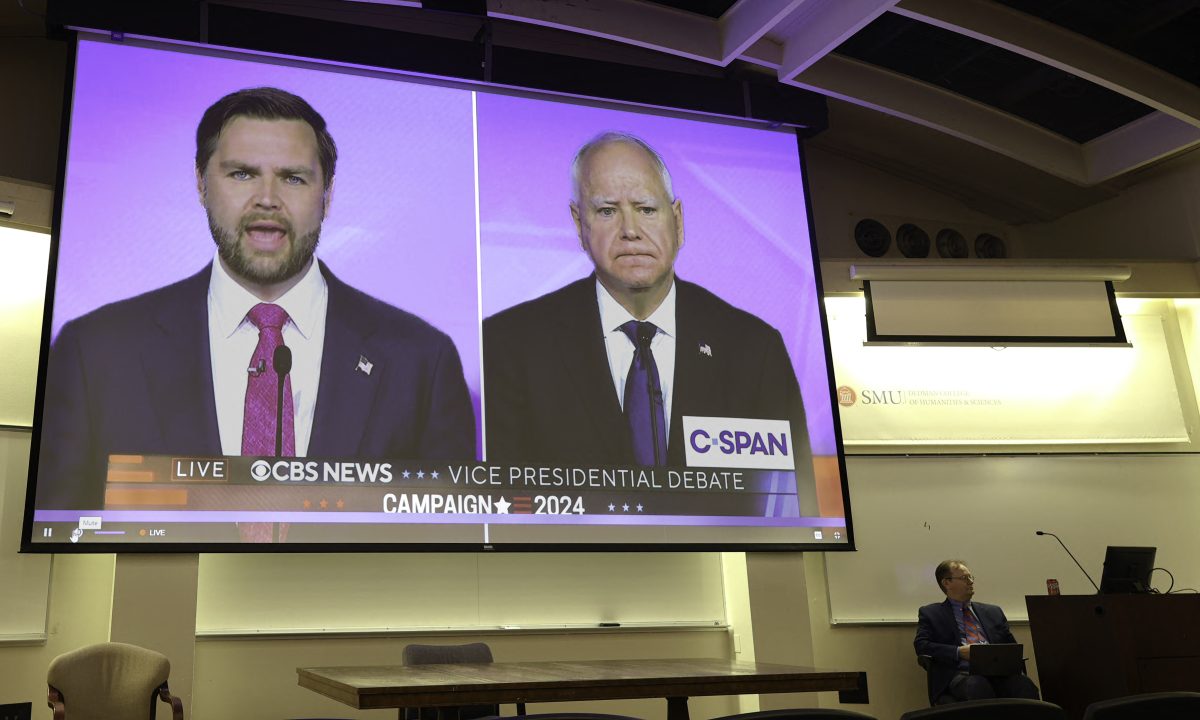Communication, whether it is through laptops, phones or word of mouth, can quickly erupt into a haze of incoherent noise. One surprising location for this din is the classroom.
Although all the students interviewed said they at least occasionally send or receive text messages during class, most said this behavior is distracting or rude. Still, some said they talk or surf the Web at times, in addition to texting.
Pamela Patton, associate professor of art history, said she considers any behavior that distracts other students – such as talking or texting – to be inappropriate. She also said it is disrespectful to the professor if a student sleeps or leaves class early.
Charlene Dondlinger, a business marketing junior, agrees with Patton.
“I get super distracted by other people’s phones and laptops,” Dondlinger said. “I hate when someone in front of me with a computer is surfing Facebook.”
Julie Stevens, a junior risk management insurance major, believes students who talk, surf the Web or text during class do not receive the full benefit of classroom instruction because their attention is focused elsewhere. Stevens thinks such behavior is disrespectful to the professor and whoever pays the student’s tuition.
However, not all students agree. Elizabeth Devogelaere, a junior advertising major, sends and receives text messages in all but one of her classes, because she does not receive service in that classroom. She does not get distracted by other student’s phones and does not think sending or receiving text messages affects the class.
“It has become sort of the norm for classroom etiquette among students,” Devogelaere said.
In addition to using electronics in class, Patton particularly dislikes it when students pack up before class is over. Dondlinger can sympathize with the professor on this point, because it does get loud when the entire class packs their bags.
“I can see how it can be rude,” Devogelaere said, “but if I do it, it’s because the professor has gone over class time and I need to get somewhere else.”
Valerie Grossman, sophomore advertising and economics major, said she understands when students do this after class time is up, but gets annoyed when they pack up before class is over.
“The teacher should dismiss the class, the class should not dismiss the teacher,” Stevens said,
Overall, there doesn’t seem to be a difference in opinion among students and professors about acceptable classroom behavior. The schism occurs in the actual behavior of the students. They tend to agree with professors about what isand is not appropriate, but students find exceptions.
“Class can be boring and cell phones are a quick entertainment outlet,” Devogleaere said.
Dondlinger sends and receives text messages depending on the lecture. She will occasionally check her phone if the class is slow or if the professor shows a video. While Stevens said she does not respond to any text messages she may receive, Grossman said she would never surf the Web during class.
All in all, students tended to criticize behavior they themselves do not do. If someone admitted to texting in class, they criticized talking or surfing the Web. If another person admitted to talking during class, they consider texting or using laptops to be distracting. They might admit behavior they partake in as a distraction, but compensate for it by saying they do not do it often.
Part of Patton’s job is helping students develop self-control. College-age students need to start taking responsibility for their behavior instead of responding to outside instruction, she said.
Not all students are capable of this when they attend college because their behavior has been controlled by external forces. She does this by articulating behavioral norms rather then enforcing rules, and when enforcement doesn’t work, Patton is forced to ask the distracting student to leave the classroom.
“If you treat students like they’re in high school, they’ll continue to act like they are,” Patton said.








